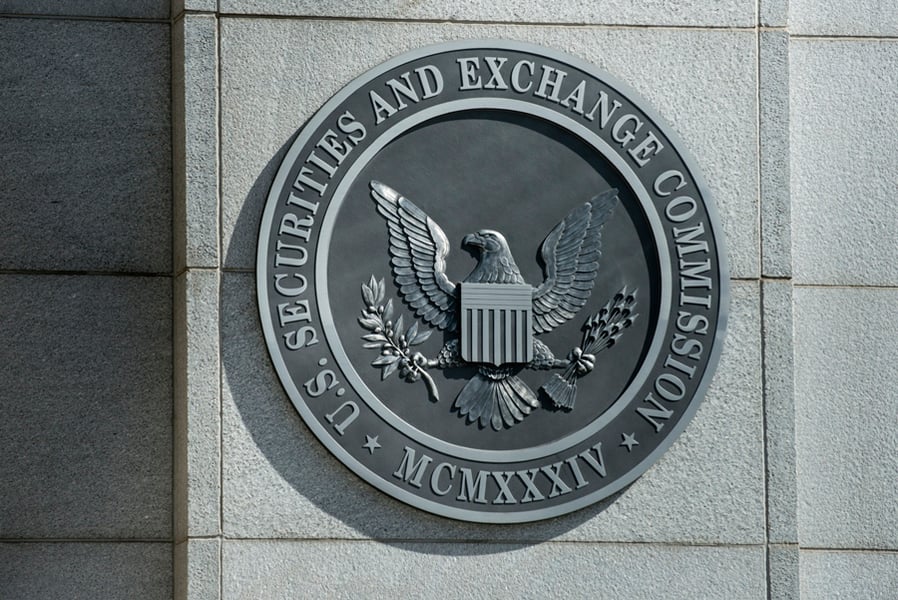As the father of three kids, I'm keenly aware that in the age of descriptor inflation, good things are called "the best," a great meal is "amazing," something funny is "hilarious" — you get the idea.
Up until the 1980s, when investors wanted to buy or sell a stock or bond, their brokers had considerable discretion about the commissions, timing and placement of the trade. All too often, the party on the other side of the transaction was a favored client of the firm, or even the firm itself.
So in 1988, the Securities and Exchange Commission addressed what it identified as a growing problem. Amid increasing public scrutiny, the SEC responded with a best execution rule to govern and normalize these transactions.
Unfortunately for investors, the SEC stopped short of providing a clear definition of what constituted best execution. So the industry and its self-regulatory organization were left to devise their own interpretation.
Some thought that the broker with the lowest commission would satisfy the best execution standard. But when customers had their trades sent to the cheapest broker, they often missed out on getting the best pricing, the fastest execution or even the likelihood that the trade would be executed at all.
Focusing on "execution" narrowed the analysis, and so brokers didn't take "venue selection" into account. Many times, there could have been another market with better pricing or quality.
Calling it "best," however, inflicted even more harm. Investors thought that they were getting the best-quality execution possible. Unsophisticated investors expected that they'd get the best possible price for a market order and the quickest possible execution for a limit order. But brokers came to define "best execution" to mean quality or reasonable execution that followed a documented process.
The best execution rule has been amended 13 times since it was promulgated and it has needed considerable written guidance over the years. Although the rule was passed in 1988, firms are still struggling to comply with it today
History often has a way of rhyming. In the current
Regulation Best Interest debate, terminology — specifically the term "best interest" — plays a major role in setting expectations.
Today's retail securities industry comprises two very different business models: broker-dealers and investment advisers. Certainly, each model could do with improved standards, but grafting the words "best interest" from the investment adviser's fiduciary standard of care and thrusting that moniker upon broker-dealers is not the way to do it.
For starters, rather than lessen investor confusion, it will further blur the lines between the sale of securities and related transactions, and objective investment advice.
While the retail securities industry needs both models, each serves a distinctly different purpose. Since the 1930s, the SEC has viewed broker-dealers as "transactional": that is, sales-based and "episodic," or transaction by transaction. Brokers, as agents of the broker-dealer, owe their primary duty and allegiance to the firm.
In contrast, investment advisers offer ongoing or holistic advice based upon the client's financial situation and in the context of their overall portfolio. By law, their responsibility is to their clients, not their employer, and they are required to act in the best interests of their clients at all times.
By the 1990s, competition and technology had decreased commissions dramatically, so brokers started offering the same services as advisers and charging an asset-based fee.
Their entry into fee-based services, along with a new emphasis on the investment advice, started to blur the lines between securities sales and investment advice. Regulators sat on the sidelines as brokers started calling themselves "advisers," "consultants" and "financial planners," even as those titles implied an advisory rather than a sales relationship with clients.
Today, investors are confused about the difference between investment advisers who offer advice and broker-dealers who facilitate securities transactions.
Investor confusion will remain, mostly because the term "best interest" will naturally be confused with the fiduciary standard when, in fact, it is not a fiduciary standard at all.
Investors need investment advisers when they're looking for objective client-centered investment advice. Investors (and their investment advisers) need broker-dealers to provide distribution services and access to capital markets.
But as we saw with "best execution," investors don't need new regulations that simply make them feel that what they're getting is what's best for them when what they're getting is simply what's not harmful to them. It may be an easy pill to swallow during high flying market performance. But when markets turn and investors are looking for objective advice, they'll learn that what the SEC sold as "best" is not that at all. To the contrary, the proposed rule only furthers this myth that all financial professionals are looking out for what's best for them.
Regardless of whether you think that brokers should be held to a fiduciary standard, let's at least align on the importance of leveling with investors and making clear to them what they're getting from their financial professionals. That would be amazing.
What can you do?
1. Comments on the proposed Regulation Best Interest are due Aug. 7th and should be emailed to rule-comments@sec.gov, with the subject line S7-08-18.
2. The Institute for the Fiduciary Standard has created a
page where advisers can download ready-to-use flyers and social media graphics.
Brian Hamburger, president and CEO of MarketCounsel and the Hamburger Law Firm, is an attorney, counselor and strategist to entrepreneurial wealth managers.







